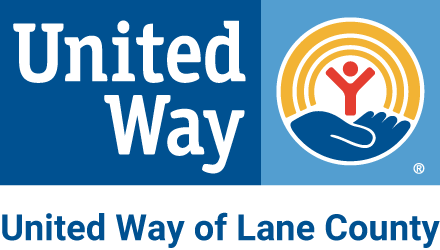Choosing the Side of Justice: reflection on the eve of MLK Day
“There comes a time when one must take a position that is neither safe, nor politic, nor popular, but he must take it because conscience tells him it is right.” ― Martin Luther King, Jr.
This past year has been a challenge and a reckoning. As we approach Martin Luther King, Jr. Day this coming Monday, January 18, many of us have been wrestling with what it means to authentically work for civil and human rights in this time; and what it means to be anti-racist and working genuinely and humbly to dismantle oppressive systems. We at United Way of Lane County are in the midst of this very hard and messy effort—right along so many of you.
“How are we contributing to disparities and inequities and what can we do to stop? How far are we willing to go?”
When I joined the team at United Way of Lane County about 18 months ago to work for equity, inclusion, and engagement, our organization had long stated that equity and inclusion were core values—going from the “talk” to the “walk” was going to take more concerted effort and while many of my teammates were ready, we had no idea how rocky or how urgent this journey would be.
One of the main goals was to move into a place of transparency, humility, and beyond discomfort—if we were going to do our part to dismantle white supremacy within our structures and operations, we were going to have to do it in plain sight—right alongside our agency partners, community members, and allies. We could not position ourselves as experts, but as fellow students striving to take a stand for what is right. We were going to make mistakes and yet, we could not stand by on the sidelines.
As we began to learn how to work remotely due to the spreading pandemic way back in March, we were also starting our first cohort of staff members reading a book that has become a textbook for white people hoping to convert thought into action: How to be an Antiracist by Ibram X. Kendi. With the killing of George Floyd in May of 2020, like so many other individuals, organizations and businesses, we knew we had to express our collective grief and publicly wrestle with the ways racism and police brutality continue to disparately impact our neighbors of color. Not everyone understood or appreciated this stance and we were compelled to continuously challenge ourselves with hard questions: How far are we willing to go? How is white supremacy showing up in our work? How are we contributing to disparities and inequities and what can we do to stop?
Kori standing near the Black Lives Matter street art in Eugene, Ore.
Paraphrasing Dr. King–the ultimate measure of a person is not where they stand in moments of convenience and comfort, but where they stand at times of challenge and controversy. This rallying cry remains—no matter how uncomfortable, challenging, or hard this is, we can and must continue our efforts.
Kori Rodley is United Way of Lane County’s Director of Equity and Engagement.
Anti-Racism Resources
Our United Way team, through book clubs, meetings, and day-to-day work and conversations, has dug in to this work in many different ways. Below are some local organizations, resources, and other educational materials we’ve found powerful and engaging in our work, though it is by no means an exhaustive list. We hope these can be helpful to you, your friends, families, and organizations in our collective work ahead.
Local Resources:
Black Lives Matter Resources:
To Read and Watch:
How to be an Antiracist, Dr. Ibram X. Kendi
Stamped from the Beginning, Dr. Ibram X. Kendi
White Fragility, Robin DiAngelo
Caste: The Origins of our Discontent, Isabel Wilkerson
Decolonizing Wealth: Indigenous Wisdom to Heal Divides and Restore Balance, Edgar Villanueva
An African American and Latinx History of the United States, Paul Ortiz
An Indigenous Peoples’ History of the United States, Roxanne Dunbar-Ortiz
The Other Slavery: The Uncovered Story of Indian Enslavement in America, Andres Resendez
I’m Still Here: Black Dignity in a World Made for Whiteness, Austin Channing Brown
White Tears/Brown Scars: How White Feminism Betrays Women of Color, Ruby Hamad
Critical Race Theory: An Introduction, Richard Delgado and Jean Stefancic
White Guilt: How Blacks and Whites Together Destroyed the Promise of the Civil Rights Era, Shelby Steele
How Change Happens: Why Some Social Movements Succeed While Others Don’t, Leslie R. Crutchfield
Biased: Uncovering the Hidden Prejudice That Shapes What We See, Think and Do, Jennifer L. Eberhardt PhD
Me and White Supremacy: Combat Racism, Change the World and Become a Good Ancestor, Layla Saad
Sundown Towns: A Hidden Dimension of American Racism, James W. Loewen
Mediocre: The Dangerous Legacy of White Male America, Ijeoma Oluo
Women, Race, and Class, Angela Y. Davis
Into the Streets: A Young Person’s Visual History of Protest in the United States, Marke Bieschke
We Are Power: How Nonviolent Activism Changes the World, Todd Hasak-Lowy
This Book Is Anti-Racist: 20 Lessons on How to Wake Up, Take Action, and Do the Work, Tiffany Jewell, Aurelia Durand
You Call This Democracy?: How to Fix Our Government and Deliver Power to the People, Elizabeth Rusch
One Person, No Vote: How Not All Voters Are Treated Equally, Carol Anderson, Tonya Bolden
I Am Not Your Negro, documentary, Netflix
“How Studying Privilege Systems Can Strengthen Compassion” | Peggy McIntosh at TEDxTimberlaneSchools


